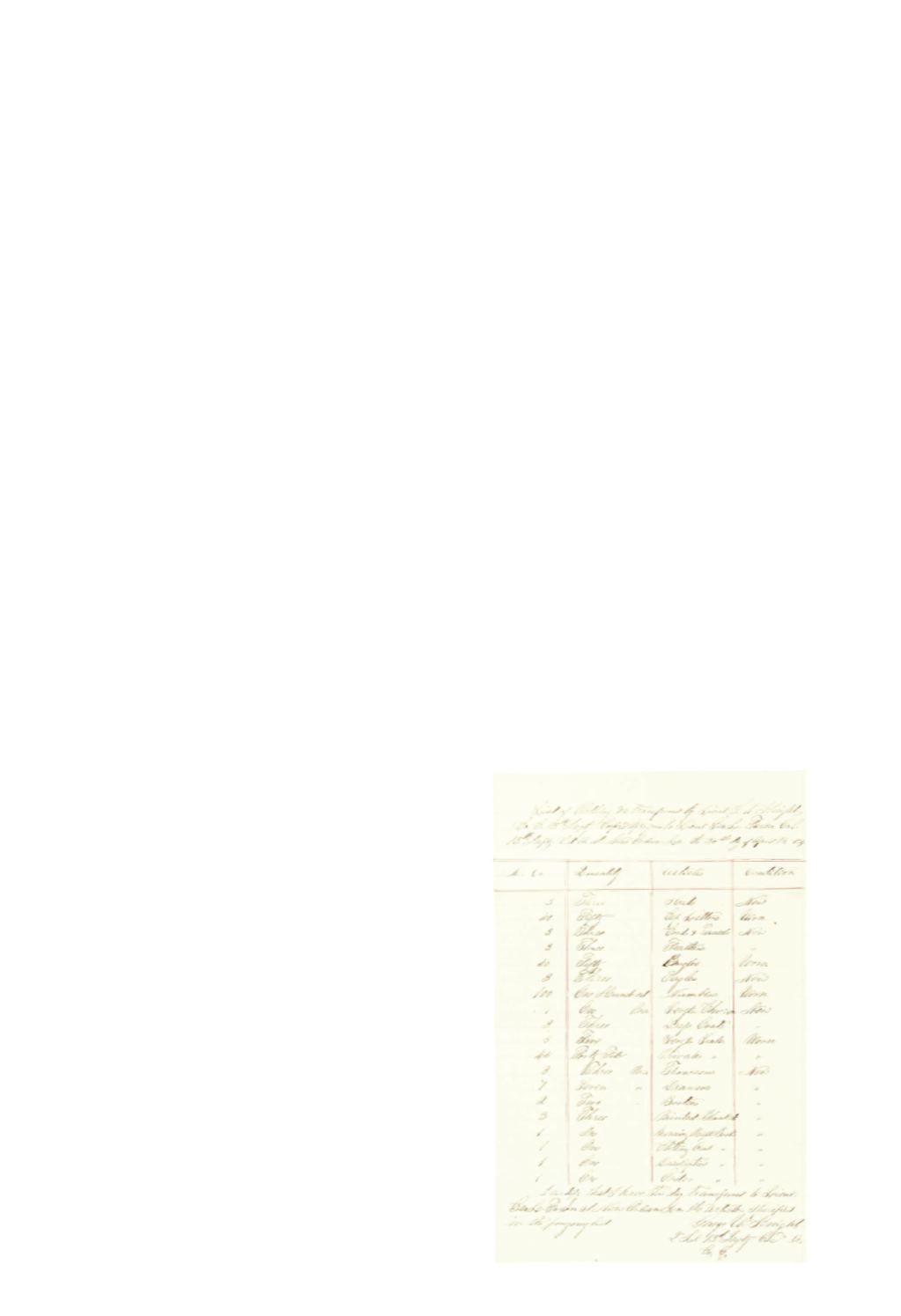

357
●
(MILITARY—CIVIL WAR.) GILBERT, WILLIAM H.
Three volumes of
personal diaries kept by the American Bible Society’s Army agent.
Three vol-
umes, 12mo, averaging 100 pages, written in pencil in a cramped, but legible hand; some
later person has made extensive notes on cards and inserted them in key dates.
SHOULD BE
SEEN
.
Vp, 25 May 1864- 1 May 1865
[5,000/7,500]
THE EXCEPTIONAL FIRST HAND JOURNALS OF THE AMERICAN BIBLE SOCIETY
’
S ARMY AGENT
WILLIAM H
.
GILBERT
,
SENT AMONG THE FREEDMEN DURING THE LATTER PART OF THE WAR
.
“The Freedmen presented the most interesting and challenging issue resulting from the Civil War.
Material in the American Bible Society’s archive confirms the judgment of Northern missionaries, mil-
itary observers and subsequent historians. ‘The Freedmen,’ in the words of American Bible Society’s
Army agent William H. Gilbert ‘are rapidly learning to read, and the considerable part of the com-
munity everywhere expresses the conviction that there is an extensive demand for the Bible among
them.’ The former slaves’ extraordinary educational appetites stimulated perhaps the greatest rise in
literacy rates in American history.” (Spreading the Word, page 218). Historian Eric Foner observed:
“A craving to read the word of God provided the immediate spur to learning for many adult blacks.”
Gilbert was sent to estimate the need for Bibles and to “spread the word” among the freedmen as well
as the soldiers, distributing tracts and flyers as well as Bibles.
The first page of his first journal reads “May 25th detained in Baltimore for a few hours. Fell in
with a wounded soldier from Auburn, New York, shot through the upper part of his mouth, from side
to side. Urged him to give himself to God. . . he appeared moved.” Later, on June 28th “Prayed with
the Negroes on General Lee’s estate. Distributed some tracts to the soldiers in camp.” He writes about
a “convalescent camp” and a “Contraband camp.” July 3rd, “A company of Contrabands have just
arrived in connection with Wilson’s Raid.” In another reference to Contrabands “Contraband camp
July 24, Expect to see Uncle Sam coming, all afraid to be sold again.” On one of the last pages of the
first journal, Gilbert speaks to the wounded in hospital. He writes that he will contact their loved
ones. In the second volume Gilbert writes from the Negro Settlement at Hampton, and “was intro-
duced to James Hacking, who says he is 105 years old.” Frequent entries about tracts and Bibles for
the Contrabands. In Richmond there was fear that Lincoln was “going to hang everybody involved in
the Rebellion.” He also writes about the deluxe Bible that was given to Lincoln by the free blacks of
Baltimore (see also lot 79, “Loyal Colored People of Baltimore”). There is simply so much detail in
these three small volumes, it is advised they be seen.
358
358
●
(MILITARY—CIVIL WAR.)
HALL, ALFRED G.
Autograph Letter
Signed by Lieutenant Alfred G. Hall
of the 2nd Infantry Corps d’Afriques,
reporting “deceased soldiers of the
2nd Regiment Infantry.
Folio leaf
folded to form four pages, written on one
side only, signed by Hall * List of
Clothing to be transferred by Lt. George
W. Knight—13th Infantry, Corps d’Afriques.
Single folio leaf, written on one side only,
detailing the supplies, trowsers (sic), coats,
boots etc. Signed by Knight.
Ship Island Miss, 20 October 1863; New
Orleans, 30 April 1864
[800/1,200]
WITH
—
A quartermaster’s want list for the
noted 1st Louisiana Native Guard, Corps
d’Afriques, the all black regiment made up of
ex-slaves. Together with another piece from the
Corps, a cover letter meant to accompany a list
of the dead from the 2nd Infantry. Material
from the Corps d’Afriques is scarce.









